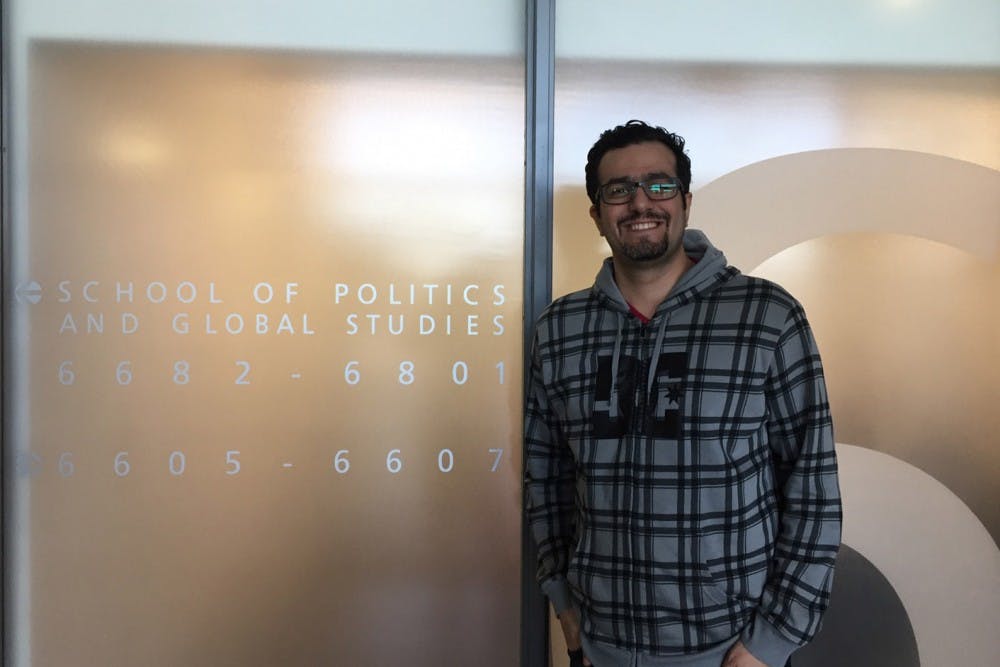The U.S. Congress overwhelmingly voted to extend sanctions on Iran last November in response to Iran failing to abide by the rules of the Iran Deal. This was supported almost unanimously in both the House and the Senate.
These sanctions are ill-conceived and could have negative consequences for the economies of both nations.
This shows how unanimous the vote was and how much our government is committed to extending these sanctions. The result was similar in the House of Representatives.
In the House of Representatives, 419 congressmen voted “yea”, 14 congressmen abstained and only one congressman voted “no.” The “no” vote was cast by Kentucky Congressman Thomas Massie, who is also on the advisory board for the Ron Paul Institute for Peace and Prosperity.
Massie casting this vote shows how those who want peace and prosperity would not want to impose nor extend sanctions on any foreign nation.
In the early 1990s, theU.N. Security Council voted to impose sanctions on Iraq. The United States, being one the five permanent members on that council, voted for the sanctions along with Russia, China, France, and the United Kingdom.
These sanctions had horrific, detrimental effects on Iraq’s economy.
Malnourishment was rampant with over 500,000 children dying, children who had nothing to do with the actions of their government. Notable historic figures such as Osama bin Laden have pegged these sanctions as a reason for the 9/11 attacks.
“Sanctions can be tough, they’re not always the most effective tools," Robert Niebuhr Ph.D, an ASU history professor, said. "They tend to wind up reinforcing the regime and hurting the people.”
This same situation could be happening in Iran right now, and we just may not know it yet. One important thing to remember is that sanctions do not hurt the elite or politically powerful. The heads of state are typically wealthy and sanctions on the economy of a country do not necessarily have a profound effect on them.
"Economic sanctions, specifically in authoritarian regimes mostly affect the people and cause human rights violations," Seyedbabak Rezaeedaryakenari, an ASU political science graduate student said.
“Forget that the promise of normalizing trade relations with Iran would produce untold wealth — and jobs — for both the US and Iran,” Daniel McAdams, one of the executive board members of the Ron Paul Institute for Peace and Prosperity, said in his article criticizing congress's decision.
Sanctions harm the people living in that nation — people who are not so well off and are typically already poor. The people of Iran are suffering as a result of these sanctions.
Young Americans for Liberty at ASU do not support this decision made by Congress. They are typically anti-war, and last semester they had a political public speaker come in to discuss what it means to be anti-war.
As students, we need to look out for our future. Sanctions do not help anyone, and these sanctions could have a negative effect on the U.S.
Without free trade, our economy could also be affected, which could invoke even more anti-American sentiment in the Middle East.
If we do not want another 9/11 to happen, rather than extending surveillance programs and being more militant, we should could consider our failed interventionist policies and examine why anti-American sentiment grows in the Middle East.
Sanctions are harmful to the economies of all the nations involved. The sanctions might not harm the U.S. as much they would harm Iran, but they could have a profoundly negative outcome on the U.S. in the future, whether it be in a year or a decade.
Reach the reporter at vpappuse@asu.edu or follow @vpappuse on Twitter.
Editor’s note: The opinions presented in this column are the author’s and do not imply any endorsement from The State Press or its editors.
Want to join the conversation? Send an email to opiniondesk.statepress@gmail.com. Keep letters under 300 words and be sure to include your university affiliation. Anonymity will not be granted.
Like The State Press on Facebook and follow @statepress on Twitter.




